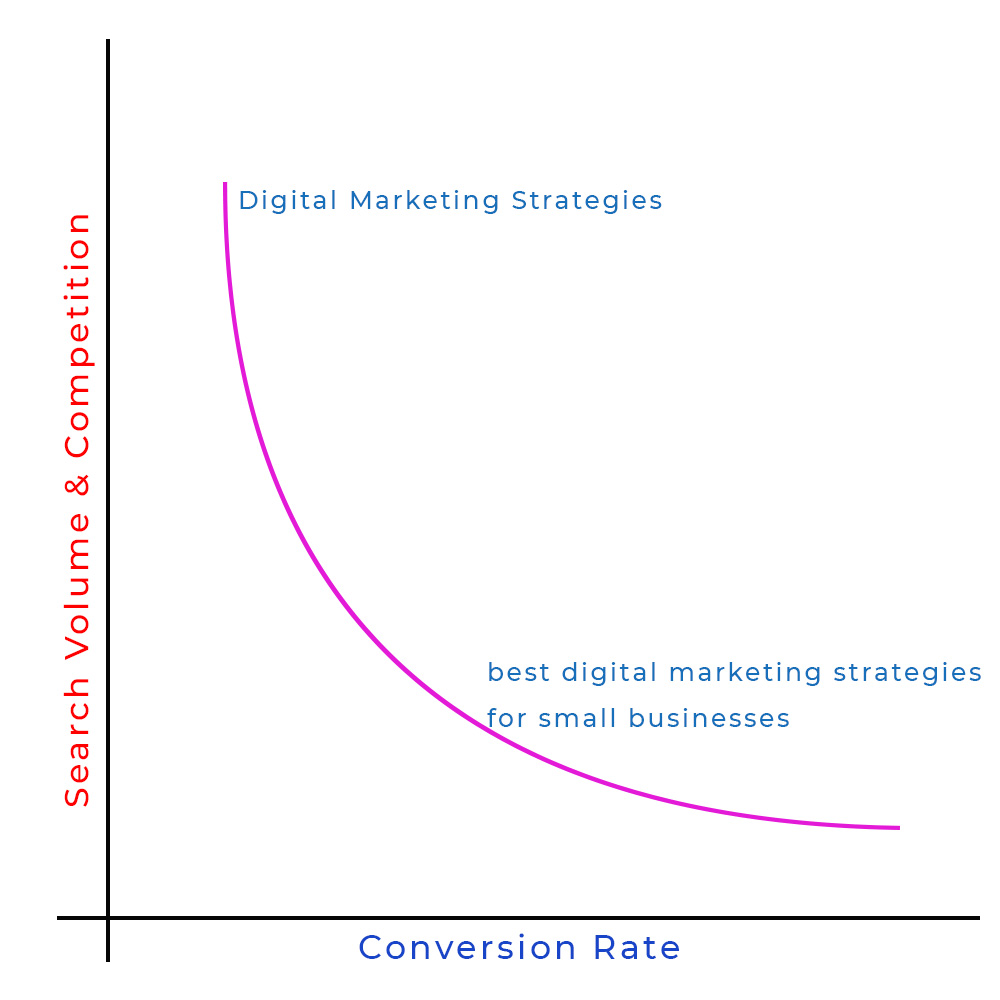Exploring the difference between short-tailed and long-tailed keywords remains a fascinating subject within the realm of SEO. Typically, short-tailed keywords exhibit high search volumes accompanied by intense competition, while long-tailed keywords showcase lower search volumes and competition. This is precisely why SEO experts deem this differentiation as a crucial and noteworthy topic.
Which is better
Arriving at a straightforward yes or no answer is not feasible in this case, as both options come with their own advantages and disadvantages. Short-tailed keywords pose challenges in terms of ranking, demanding considerable effort and time. However, the upside is that once you achieve a high ranking, it can result in substantial website traffic. For instance, the keyword “SEO Expert” monthly search volume of 10,000 in the UK.
On the other hand, long-tailed keywords present a scenario where competition is low, and achieving a ranking requires less effort compared to their shorter counterparts. Nevertheless, the trade-off is that they tend to cater to a more specific intent. Consider the example of “best Freelance SEO Expert in London,” which registers 1,000 monthly searches according to Google Keyword Planner.

Short-Tailed Keywords:
Short-tailed keywords, often referred to as “head” or “generic” keywords, are concise and typically consist of one or two words. These keywords are broad in scope and capture a general idea or topic. For example, “digital marketing,” “smartphones,” or “fitness tips” are all examples of short-tailed keywords.
Advantages of Short-Tailed Keywords:
High Search Volume: Short-tailed keywords usually have a higher search volume, as they are generic and attract a broader audience. This can be advantageous if you are aiming for widespread visibility.
Brand Visibility: Using short-tailed keywords can enhance brand visibility, especially for businesses or entities that want to establish a presence in a competitive market.
Ideal for General Information: If your content aims to provide general information or if you have a well-established brand, short-tailed keywords can be effective in reaching a broad audience.
Challenges of Short-Tailed Keywords:
High Competition: Due to their popularity, short-tailed keywords often face intense competition, making it challenging to rank high in search engine results.
Lack of Specificity: These keywords may lack specificity, leading to lower conversion rates as they attract users who may not be looking for precisely what your content offers.
Long-Tailed Keywords:
Long-tailed keywords, on the other hand, are more specific and typically consist of three or more words. These keywords drill down into a particular niche or address a specific user query. There are two essential subcategories within long-tailed keywords: Supporting long-tail keywords and Topical long-tail keywords.
Supporting Long-Tail Keywords:
Target Audience: Emphasizing extended keyword variations, supporting long-tail keywords offer additional specificity to a main long-tailed keyword. For instance, consider “best digital marketing strategies for small businesses in 2024,” which acts as a supporting long-tail keyword linked to the primary long-tail keyword “digital marketing strategies.” Similarly, “SEO Consultant in London” or “Best SEO Expert in London” are supporting long-tail keywords associated with the primary keyword “SEO Expert in London.” In this context, achieving a high rank on the primary keywords such as “Digital Marketing Strategies” and “SEO Expert in London” will prompt Google to recognize and rank your page for the related supporting long-tail keywords, as it intelligently understands the equivalence of these phrases.
Enhanced Relevance: These keywords allow you to create highly relevant content tailored to a particular aspect of your main topic, catering to users with more specific queries.
Topical Long-Tail Keywords:
In-Depth Content: Topical long-tail keywords focus on specific themes or topics within a broader category. For instance, “vegan diet meal plans for weight loss” is a topical long-tail keyword related to the broader topic of “vegan diet”. Simply being ranked for the keyword “vegan diet” does not guarantee that your page will also rank on Google for “vegan diet meal plans for weight loss.” To secure a higher ranking for the latter, it is essential to create a distinct blog specifically focused on “vegan diet meal plans for weight loss.”
Authority Building: Crafting content around topical long-tail keywords establishes your authority in a niche, attracting a dedicated audience interested in a particular aspect of your expertise.
Advantages of Long-Tailed Keywords:
Targeted Audience: Long-tailed keywords are excellent for reaching a highly targeted audience. Users who search for specific phrases are often closer to the point of making a decision or a purchase.
Lower Competition: As long-tailed keywords are more specific, they generally face lower competition, making it easier for your content to rank higher in search results.
Higher Conversion Rates: Because long-tailed keywords attract users with a more defined intent, they often result in higher conversion rates, making them valuable for businesses aiming to generate leads or sales.
Challenges of Long-Tailed Keywords:
Lower Search Volume: Long-tailed keywords may have lower search volumes compared to their short-tailed counterparts. This can impact overall visibility, but the trade-off is often higher quality traffic.
Constantly Evolving Trends: Specific long-tailed keywords may be subject to changing trends, requiring regular updates to stay relevant.
Conclusion:
In the dynamic world of digital marketing and content creation, striking the right balance between short-tailed and long-tailed keywords is crucial. Understanding your audience, the nature of your content, and your overall objectives will help you determine the most effective keyword strategy for your online presence. Whether you opt for the broad appeal of short-tailed keywords or the precision of long-tailed keywords, a well-thought-out approach of keyword research and content strategy will undoubtedly contribute to your success in the competitive online landscape.